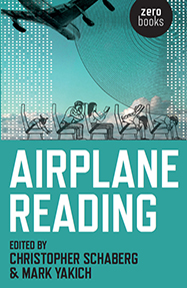You sit at the edge of your seat in the boarding area, cradling your hand luggage. You see everyone lining up like sardines all rolled up in a tin, but they are actually upright, marching, filing into their assigned boarding rows like they’ve done this in their sleep, and in their dreams over and over again. You remember you, too, have done this over and again throughout your life, probably over 300 times, but it just doesn’t feel the same anymore. Something has changed. Something has changed you. You are not the same person, or feel the same way about this whole flying business. You try to understand why this has happened to 50-something, post-pandemic you, and feel paralyzed, yet you inch forward into the line. You have to if you want to get home.
You wait, as the last passenger in line gets to the podium and is scanned by the gate attendant. You shuffle back and forth nervously, but not letting anyone see that you are. You look at your phone intently. Scroll, scroll. You are trying to fend off the anxiety, the pounding. You need a sip of water! Yes! Where did you stash the water bottle again? You mention to the nice lady waiting to scan you at the podium that you need a few minutes. Just one extra minute to wait until the long line into the jetway tunnel shrinks some more. You need it to shrink just enough. The nice lady nods at you, with a smile, like she understands. Like she’s seen this a hundred times, but you still feel self-conscious even if grateful. You feel better when she smiles. Less anxious, but still anticipating the dreaded walk into this long metal tube that will hurtle you into the skies while flying miles above ground—trapped. You walk into the cabin. You take the prescribed three deep belly breaths as you listen to Barry McDonagh’s calming, sexy Irish voice on your panic management phone app, telling you to invite the unwelcome anxiety in: "Never get upset when anxiety shows up at your door. Smile and be the perfect host: invite it in, sit it down, and serve it tea." You then walk yourself into the fear.
In the cabin, you chit-chat with the flight attendant, not letting her sense your nerves, and she tells you to have a good flight. You settle in, placing your handbag underneath the seat in front of you along with the paper bag that holds your bottle of water and the overpriced sandwich you got before you boarded—just in case! You prefer to check your carry-on now. Once seated, buckled in and settled, the flight takes off without issue, and you fly for hours. This part is easy. The night slipping into a sunrise, and later what seems like another sunrise, but actually is a sunset in a new timezone. You watch two movies, well, only half of one, and then jubilantly find Mamma Mia, and easily watch that in its entirety. It’s familiar and reminds you of fun nights re-watching it with your teenage daughter during the pandemic. You feel happy; it lasts for just enough time. And then....
You hear the announcement that your flight is about to reach its destination…so you prepare for the disembarkation. You forget how difficult this actually is and you begin to calculate the distance from your seat to the exit door and how quickly you can get off before everyone will block your path. You are grateful that you chose the left side of the plane with the door, and an obligatory, upfront aisle seat, so you can quickly scoop up your purse, strategically placed under the seat in front of you, for precisely this quick getaway.
The plane lands and comes to an abrupt stop at the gate. You wait. Everyone waits—but for only a nanosecond. The lights and engine go off and the domino-like cacophony of metal buckles snapping open echoes loudly. Ha! But you were quicker and faster because you secretly opened yours a few seconds before the plane came to a full stop! Your small build and swift childhood ballerina’s feet help you quickly breeze past the front four rows before the slow, older men and mothers with babies in laps stand up to hijack your space in the narrow aisle. You have finally mastered this because you used to wait way too courteously long, getting stuck behind all the standing people ahead of you—all 20-plus rows of irritatingly slow people ahead of you, as your panic attacks would mount and spiral unrelentingly. You have learned since the pandemic how to cope and manage and plan so you can live and be free. You are learning to fly, again.
Aisha Piracha writes creative nonfiction that reflects on her place in this world and people who shape it. She grew up in Laos and Thailand and earned a B.A. from Smith College. In previous lives, she found employment in law, banking and web-design, but fulfillment in nonprofits, voting rights advocacy and motherhood.






